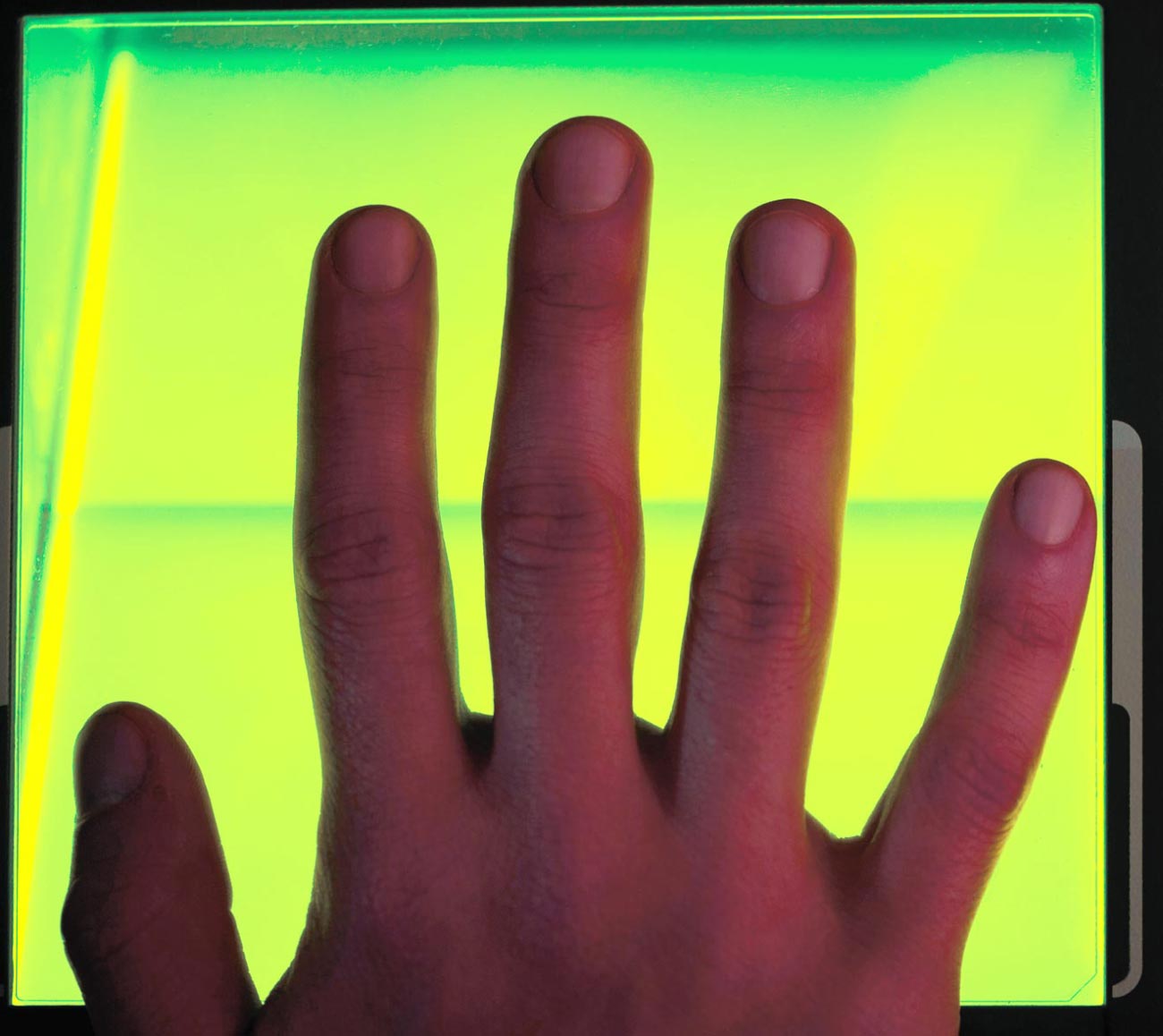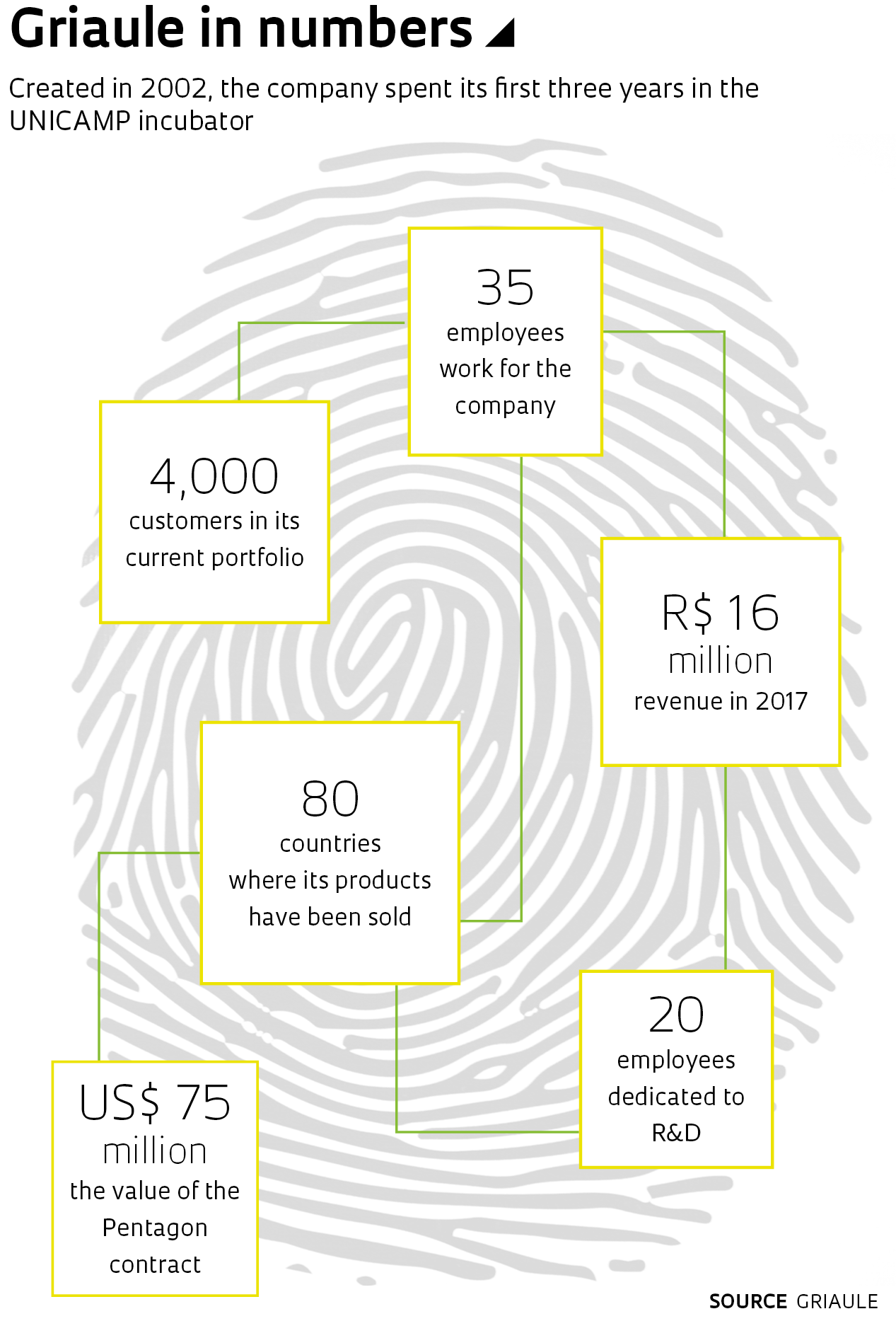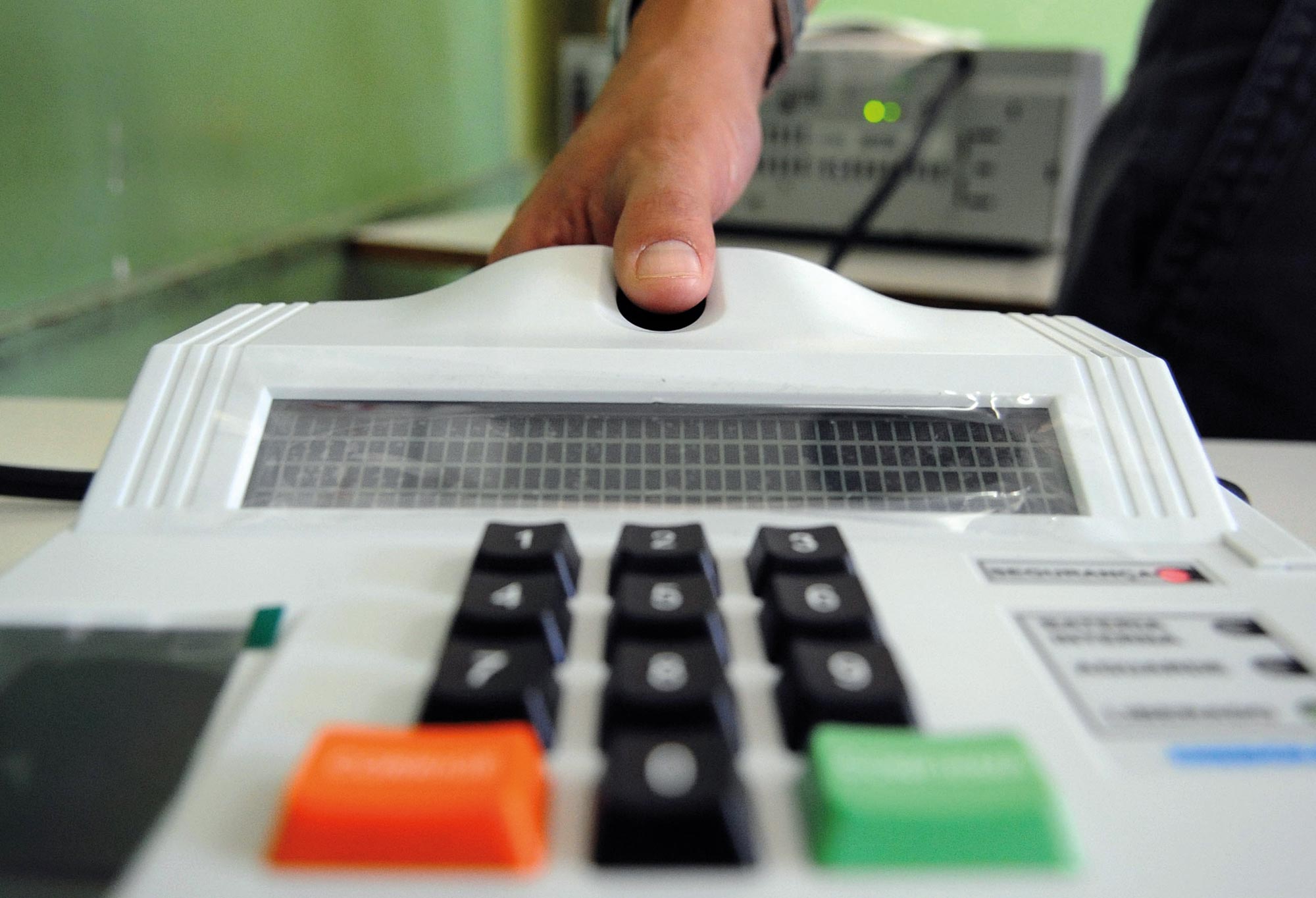Griaule, a company based in Campinas, São Paulo State, provides biometric solutions for ensuring the fidelity of electoral data. In recent months, the firm has won two major contracts in the USA. In September, the company, which was founded at the University of Campinas (UNICAMP) and received funding from FAPESP, was chosen by the US Department of Defense (DoD) to provide an identification system for the storage and certification of biometric data for 55 million Iraqi citizens as well as another 30 million people in Afghanistan. The following month, the Arizona State Department of Public Safety chose Griaule’s biometric technology to assist police investigations and perform criminal background checks for public officials.
Biometric systems such as those developed by Griaule recognize people by the unique characteristics of their body, such as fingerprints, facial features, or irises. The contract with the DoD, which is based at the Pentagon, is worth US$75 million and will be executed over five years, with an extension option. Having participated in wars in Iraq and Afghanistan, the US is now working with local authorities to rebuild, which explains why Washington is contracting the services.
One of the biggest developers of biometric solutions in Brazil, Griaule, participated in the Pentagon bidding process as part of a team with six other companies, all of which are from the US. The technology to be provided, however, is 100% Brazilian according to the company. The consortium was led by a joint venture called RS3, which is run by EIS, a company that already provides engineering services and technology solutions to the US federal government.

Griaule
Handprint reader, one of the biometric solutions developed by the companyGriaule“Seeing a company with Brazilian DNA win international contracts for state-of-the-art solutions is a source of great pride. It puts Brazil on the map in terms of major providers of global biometrics solutions,” says computer scientist Anderson Rocha, a professor at the UNICAMP Computing Institute. “Being selected by the Pentagon shows that the company is offering something innovative and unique. Griaule was able to convince top DoD officials that it is worth working with. This is very good for Brazil and for the country’s software industry in particular.”
Multimodal platform
The technological solution chosen by the DoD, which operates under the executive branch of the federal government, was the Griaule Biometric Suite (GBS), a multimodal software package capable of identifying individuals by analyzing their hand and fingerprints, voice, face, and irises. The software collects biometric data and stores it in databases. The contract covers the sale of two systems to the US government, which will in turn provide them to its allied countries. “The biometric identification systems currently used in Iraq and Afghanistan are out of date. We are going to replace them and extend their functionality,” says Renato Burdin, operations manager at Griaule.
According to Burdin, the system will be used for border control and for issuing documents to Iraqi and Afghan citizens, as well as in criminal investigations. The software will be capable of recognizing hand and fingerprints found at crime scenes, known as latent prints. “GBS is designed to be multimodal. I believe this project will use more biometric factors at the same time than most,” says Burdin.
Griaule created the software used for storing, validating, and authenticating the biometric data of Brazilian voters
Under the Pentagon contract, Griaule will use existing national databases from both countries, allowing for the continuous aggregation of new biometric information. “In the first year, we will migrate from the current system to GBS. From then on, we will provide technical support and maintenance services,” explains Burdin, pointing out that the Griaule system has already obtained dozens of national and international certifications, 20 of which were issued by the Federal Bureau of Investigation (FBI).
In the US$7.5 million deal with Arizona, the technology will also be used for civil and criminal purposes. “It is important to note that the GBS platform can be used by multiple state organizations and can communicate with federal systems,” said Burdin. Michigan state police already use the company’s biometric technology.
Fostering research
Founded in 2002 by the electrical engineer Iron Calil Daher, Griaule was part of the UNICAMP incubator for its first three years. Working so closely with the university helped the company recruit bright young talent. The initial staff of five has multiplied sevenfold, and today, Griaule has approximately 35 employees, 20 of which are graduates and four of which have PhDs or specialist postgraduate qualifications. The research and development (R&D) team behind the solutions developed by the company consists of 20 people, most with backgrounds in engineering and computer science.


